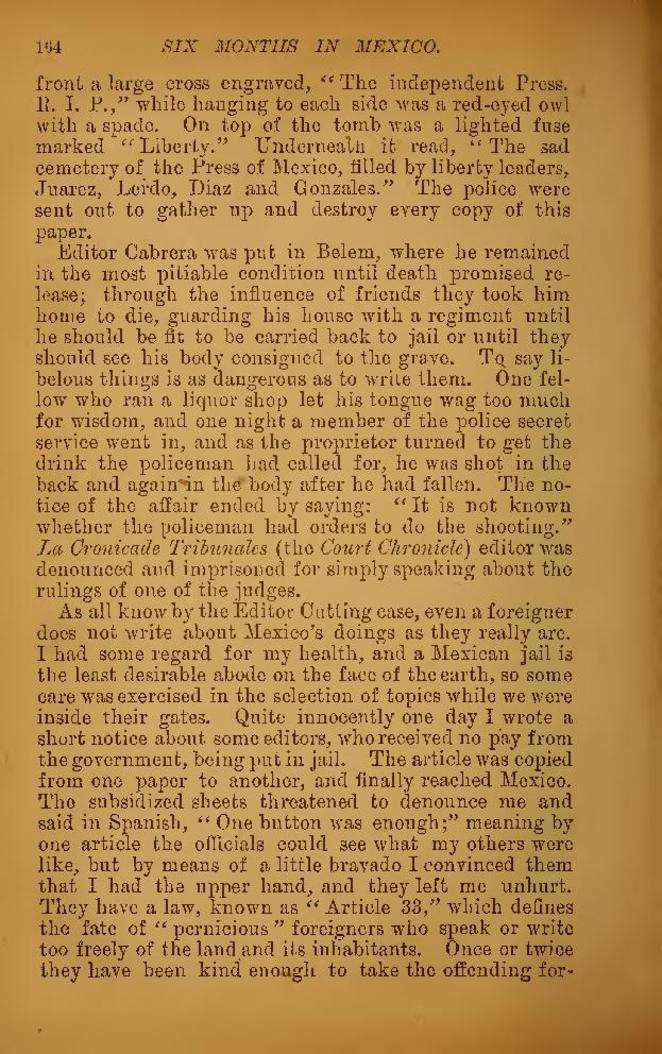front a large cross engraved, "The independent Press. R. I. P.," while hanging to each side was a red-eyed owl with a spade. On top of the tomb was a lighted fuse marked "Liberty." Underneath it read, "The sad cemetery of the Press of Mexico, filled by liberty leaders, Juarez, Lerdo, Diaz and Gonzales." The police were sent out to gather up and destroy every copy of this paper.
Editor Cabrera was put in Belem, where he remained in the most pitiable condition until death promised release; through the influence of friends they took him home to die, guarding his house with a regiment until he should be fit to be carried back to jail or until they should see his body consigned to the grave. To say libelous things is as dangerous as to write them. One fellow who ran a liquor shop let his tongue wag too much for wisdom, and one night a member of the police secret service went in, and as the proprietor turned to get the drink the policeman had called for, he was shot in the back and again in the body after he had fallen. The notice of the affair ended by saying: "It is not known whether the policeman had orders to do the shooting." La Cronicade Tribunales (the Court Chronicle) editor was denounced and imprisoned for simply speaking about the rulings of one of the judges.
As all know by the Editor Cutting case, even a foreigner does not write about Mexico's doings as they really are. I had some regard for my health, and a Mexican jail is the least desirable abode on the face of the earth, so some care was exercised in the selection of topics while we were inside their gates. Quite innocently one day I wrote a short notice about some editors, who received no pay from the government, being put in jail. The article was copied from one paper to another, and finally reached Mexico. The subsidized sheets threatened to denounce me and said in Spanish, "One button was enough;" meaning by one article the officials could see what my others were like, but by means of a little bravado I convinced them that I had the upper hand, and they left me unhurt. They have a law, known as "Article 33," which defines the fate of "pernicious" foreigners who speak or write too freely of the land and its inhabitants. Once or twice they have been kind enough to take the offending for-
